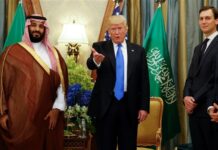The 9th Summit Meeting of Shanghai Cooperation Organization (SCO)
At the 9th Summit Meeting of SCO in Russia this week, a number of side events are also taking place. These activities include a meeting of the Collective Security Treaty Organization (CSTO) and a gathering of the leaders of BRIC. Although much of this is symbolic, significant patterns are beginning to emerge. POLITACT is monitoring these patterns and more detailed analyses will be forthcoming.
Emerging Alliances and BRIC Nations
Members Shanghai Cooperation Organization (SCO) – Kazakhstan, China, Kyrgyzstan, Russia, Tajikistan and Uzbekistan
Observer Status: Iran, India, Pakistan
Dialogue Partner: Sri Lanka, Belarus
Members Collective Security Treaty Organization (CSTO) – Russia, Belarus, Kazakhstan, Armenia, Kyrgyzstan, Tajekistan
BRIC – Brazil, Russia, India and China
The North Atlantic Treaty Organization (NATO) took birth in 1949 in the aftermath of the World War II. The first NATO Secretary General, Lord Ismay, famously stated the organization’s goal was “to keep the Russians out, the Americans in, and the Germans down”. The strength of the relationship between the European states and the United States fluctuated over time, along with associated credibility of the NATO defenses against a prospective Soviet invasion. With the end of Cold War and the Warsaw Pact, one of the main premises upon which NATO military alliance was formulated was gone. The alliance began to look for a new purpose and identity which could keep them united against emerging threats.
For more than a century, United States has benefited from a divided and dependent Europe. The disappearance of the Soviet threat and the European Unification both jolted the purpose for which NATO was needed. Furthermore, United States now wants both Germany and Japan, which were the losing powers of World War II, to share increasing burdens of the world. Particularly, in efforts related to war on terror in Iraq and Afghanistan and to deal with resurgent Russia. France, Germany, and United Kingdom have differing views and stakes regarding the conflicts in Afghanistan, and on how to deal with resurgent Russia. These differing views will shape the future of NATO as United States need help to shape the future world, while its own economy dwindles. United States must have the support of its NATO allies if it is to be effective in playing a leading role in the world.
SCO is not only an emerging alliance but it is also cooperating and competing with NATO for resources in Africa, Middle East, and most importantly in Central Asia. A defeat in Afghanistan would not just be a blow for the Americans but it would mean a lethal wound for the NATO alliance, and would implicate a stronger SCO. In the present global economic crisis, China has emerged stronger, and it is using its cash reserves to buy energy stakes in different regions of the world.
China and the Russia have so far managed and avoided a collision of their interests. If they’ll continue that trajectory is an open discussion. Meanwhile, the Russian’s are exploiting the divides between Europe and the United States. With France and Germany formulating a more independent route, United States has to increasingly rely on Eastern European republics for support in European and global affairs. The SCO and CSTO alliances, under China and Russia, thus seem to be acting as a centrifugal force towards NATO. As long as there is no viable threat to the security of Europe, it would be hard to keep the NATO alliance united. The threat from Extremism, Iranian nuclear program and North Korean saber-rattling provide some of the reasons to keep NATO united. The question becomes, is that enough to keep the Germans and the French fused with the interests of United States and Britain? Or, will France and Germany pursue a more independent foreign policy as increasingly seems to be the case.
.



